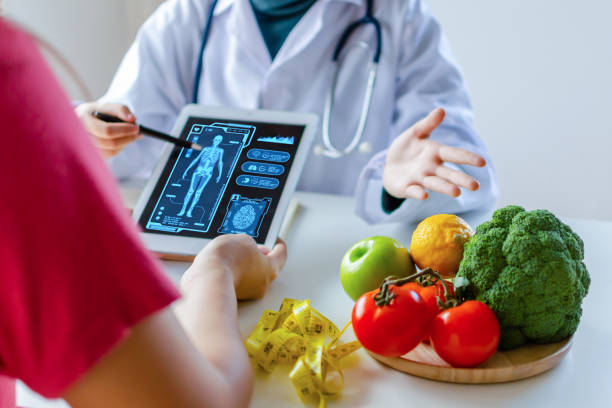Leveraging Nutrition Technology to Improve Patient Health Outcomes in 2024

Leveraging Nutrition Technology to Improve Patient Health Outcomes in 2024
Introduction
As we advance into 2024, the integration of nutrition technology into healthcare practices is reshaping how we manage patient health. Tailored nutrition apps, smart dietary devices, and AI-driven meal planning are becoming essential tools in enhancing patient outcomes through personalized diet interventions.
The Impact of Nutrition Technology on Healthcare Nutrition technology encompasses various tools and applications that assist in creating personalized diet plans based on a patient’s specific health needs. These innovations not only help in chronic disease management but also enhance overall wellness by providing precise nutritional guidance.
Benefits of Nutrition Technology in Patient Care
- Personalized Dietary Recommendations: Using data from health records and wearable devices, nutrition technologies can create customized meal plans that cater to individual health conditions, preferences, and goals.
- Monitoring and Compliance: Apps and devices can track patient adherence to prescribed diets and suggest adjustments when necessary, ensuring continuous alignment with health objectives.
- Enhanced Patient Engagement: Interactive platforms that monitor dietary intake and provide feedback encourage patients to take an active role in managing their health.
Strategies for Integrating Nutrition Technology into Healthcare Adopting nutrition technology effectively involves several key strategies:
- Integration with Existing Health Systems: Ensure that nutritional apps and tools seamlessly integrate with current health IT systems to maintain continuity and accuracy of health data.
- Patient Education: Educate patients on how to use these technologies effectively, emphasizing the impact of diet on their overall health and specific conditions.
- Continuous Feedback Loop: Use data collected from nutrition technology tools to refine and adjust dietary plans regularly, based on patient progress and feedback.
Addressing Challenges While promising, the implementation of nutrition technology faces several challenges:
- Data Privacy: Safeguarding sensitive personal health and dietary information is paramount. Transparent data handling and secure software systems are necessary to protect patient privacy.
- Accessibility: Ensuring that these technologies are accessible to all patients, including those with limited tech experience or in low-resource settings, is essential for broad adoption.
- Interdisciplinary Collaboration: Effective nutrition management often requires collaboration between dietitians, doctors, and technology providers. Structured communication and joint protocols are essential to align on patient care approaches.
Conclusion
Nutrition technology offers a promising pathway to personalize and enhance healthcare through diet. As 2024 progresses, these tools are set to play an essential role in healthcare strategies, helping providers deliver more targeted and effective dietary interventions that improve patient health outcomes.
Call to Action
Healthcare providers should consider adopting nutrition technology solutions to enhance their dietary management practices. By doing so, they can offer more comprehensive, data-driven care that actively engages patients and leads to better health results.



